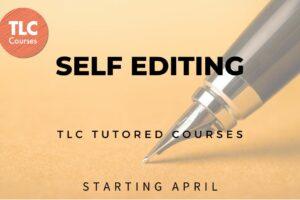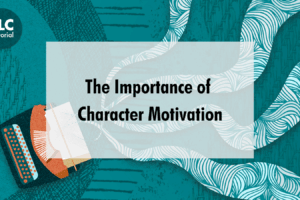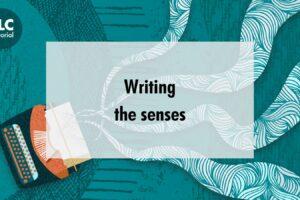Beta reader (n.) A beta reader is a test reader of an unreleased work of literature or other writing (similar to beta testing in software), giving feedback with the angle of an average reader to the author about remaining issues.
You’ve worked for months or years on your manuscript. You’ve gone through it yourself and done some edits. Whether you are writing fiction or non-fiction eventually you will need to discover whether what is in your head has translated well to the page.
One way of doing this is to hand your manuscript over to a small group of ‘test’ readers and solicit their feedback. These test readers are commonly referred to as beta readers. They can tell you what works and what doesn’t.
If you are considering using The Literary Consultancy’s manuscript assessment service you will get more value from it if you use beta readers first, do another round of edits and then submit your manuscript.
1. Where to find beta readers
When people know you are writing a book you will get many offers to read it. Just because someone is keen and loves reading, that alone doesn’t make them a suitable beta reader.
For non-fiction you need people who are either familiar with your subject matter or are in the target market to learn about it.
For fiction choose readers who will enjoy your genre otherwise the feedback will be driven by comments such as “I didn’t like the fantasy element where some people could execute magic.” Can you imagine someone with a dislike for wizards being a beta reader for Harry Potter?
You can also ask for one or two volunteers from your writers group. They understand the writing process and can give feedback from that point of view.
Choose between three and five readers. I like to have an odd number so that if people disagree on a certain aspect of the book you won’t have a draw.
If you need someone to spot grammatical errors and incorrect words prior to submitting your manuscript to an agent or publisher, ask a teacher. They have eagle eyes and are not afraid to get their red pen out.
2. Preparing your readers
You need beta readers who are reliable and motivated. It is going to require several hours of their time. As a rule of thumb it takes an hour to read and process 10,000 words. Therefore if your manuscript is 100,000 words tell your beta readers that it is approximately ten hours of reading time.
Give them a deadline two to three weeks in the future and make an arrangement up front to meet and discuss the feedback.
3. Preparing the manuscript
Ask your readers how they would like the manuscript. Some people like to read from paper, others prefer a screen.
For the former, print out the manuscript and give it to them. Yes – you burn through the paper and toner and stand over your printer while it spits out two to three hundred pages. It is rude to expect others to do this when they are already giving up their time and energy to read the book for you.
If they prefer to read electronically don’t use a pdf as they need to be able to track changes and insert notes. Ask which format they prefer. This will boil down to whether they are an Apple or a PC user. Google Docs will work on both platforms. Microsoft Word will work on Apple but Apple formats will not work on a PC. You will need to export to Word format in this case.
4. Getting past “yeah I liked it”
Your readers are probably your friends or colleagues. They will be afraid of hurting your feelings if there were aspects of your book that didn’t work for them. If you just ask them what they thought of it you might get a response such as “Yeah. I liked it.”
One way to get them to open up more is to stress that your manuscript is a work in progress (even if you have slaved over it for years and consider it ‘done’). Tell them that you want to find ways to improve it.
Another way is to run the feedback meeting as though it is a book group. In a group situation your readers will bounce off each other. This will create more distance and objectivity than if you met one on one. I did this recently for my novel and made the meeting into a fun occasion by using my best china and serving cream cakes.
I gave my readers the following questions and then used them to kick off the feedback meeting.
- What did you like about the main character?
- Is there anything that drove you nuts or you didn’t like about them?
- Were there any points where you got confused? If so, please jot down the page numbers.
- What character did you love and why?
- What character did you hate and why?
- What are the things that made you laugh?
- What made you cry or feel emotional?
- At what points did you get bored?
- What did you expect would happen at the end? Were you happy or unhappy with the resolution?
Be specific about the type of feedback you require. Is it just proofreading and making sure that there are no goofy sentences or do you want more in depth thoughts? If you are undecided about a section of the book tell your readers about your dilemma and seek their opinion on it.
5. You need to prepare, mentally
This is one of the most important steps. You don’t need me to tell you how hard it is to receive criticism of your work. You need to be able to hear what is being said and not react defensively.
To cope with this you need to be in a peak life-state. If you have a religious or philosophical regime around prayer and meditation, this is the time to ramp up your efforts particularly on the day of the feedback meeting.
Remember that feedback will make your work better. Most books, plays and films go through multiple drafts often right up to the moment of production. This is normal.
When your readers tell you something that is difficult to hear, just write down their thoughts and say that you will need to process them. If you are calm, relaxed and open, this will translate to your readers; they won’t feel anxious about telling you areas of your work that need further development.
You don’t have to act on all of your reader’s points. It is your work and you make the final decision based on your gut feel. If everyone comes up with the same suggestion for change then it might be something you have to take on board. This article will give you excellent tips on how to manage the feedback.
You will also hear what your readers loved about your work. You will see their faces light up as they talk about their favourite character or as they tell you what they learned from your book. Enjoy and savour this moment.
Enjoyed this blog? Head over to The Gentle Creative for a free creative manifesto download, full of gentle tips on making time to be creative, overcoming fear and recognising the value of your artistic life.









13 responses
Great info article, thank you.
Great article and the questions you listed are very helpful. Is it Ok to use them for my group of readers, please?
Hi Sheelagh, absolutely! Please do credit Cali Bird and The Literary Consultancy
The content of this article is informative and relevant for an aspiring author like myself. I am starting a memoir and asked my writers group for beta readers. I understand that is one way to introduce my work to the public. My group leader asked me what a beta reader does. I searched Google and found you. Then I browsed the website and found more information about writing and creativity. Thank you so much for posting this blog. I appreciate it. 🙂
This was very helpful! Thank you!
Excellent and informative article for a first time budding novelist. Now I have something to ask my beta readers.
I was seeking whether to pay a reader, and came to this article about the new-for-me-term ‘Beta Readers’ that put me at ease. So very helpful! My first large manuscript is almost completed. Thank you Cali Bird!
I have to agree – this is an excellent and informative article!!! It is just the information I was looking for to enter into the beta-reader phase for my book. Thank You!!
Great tips for getting the most from your beta readers!
Great tips for getting the most from your beta readers!